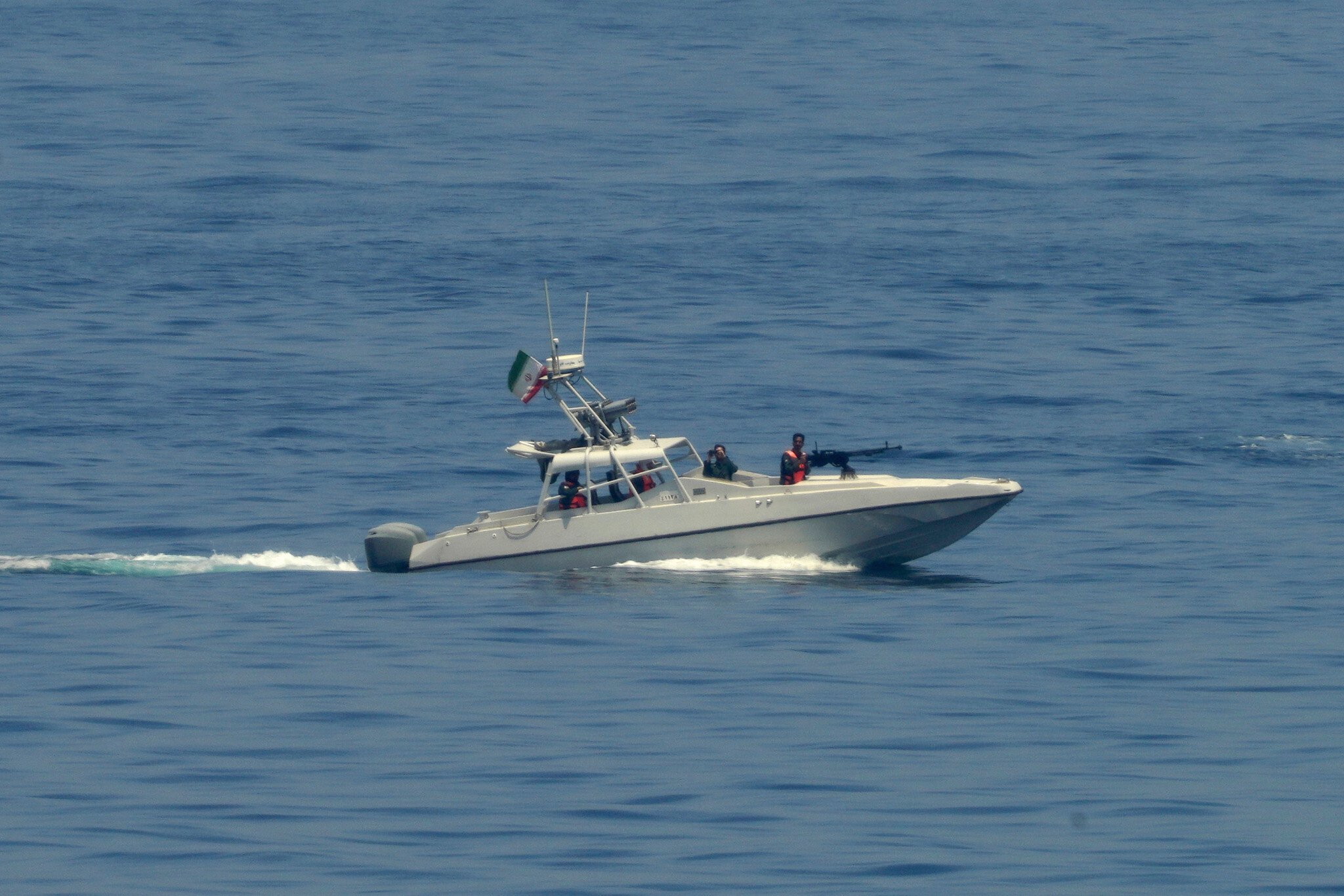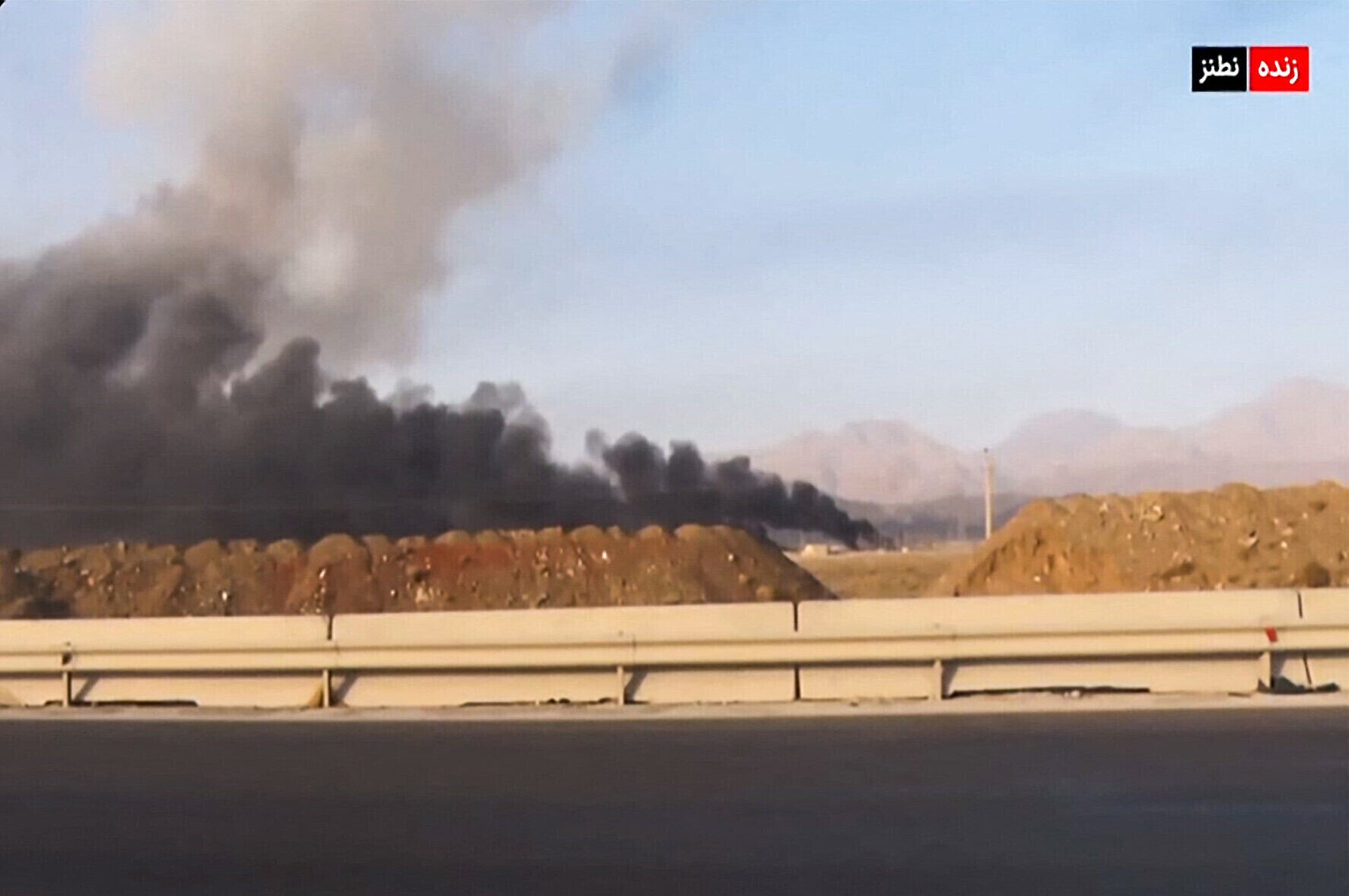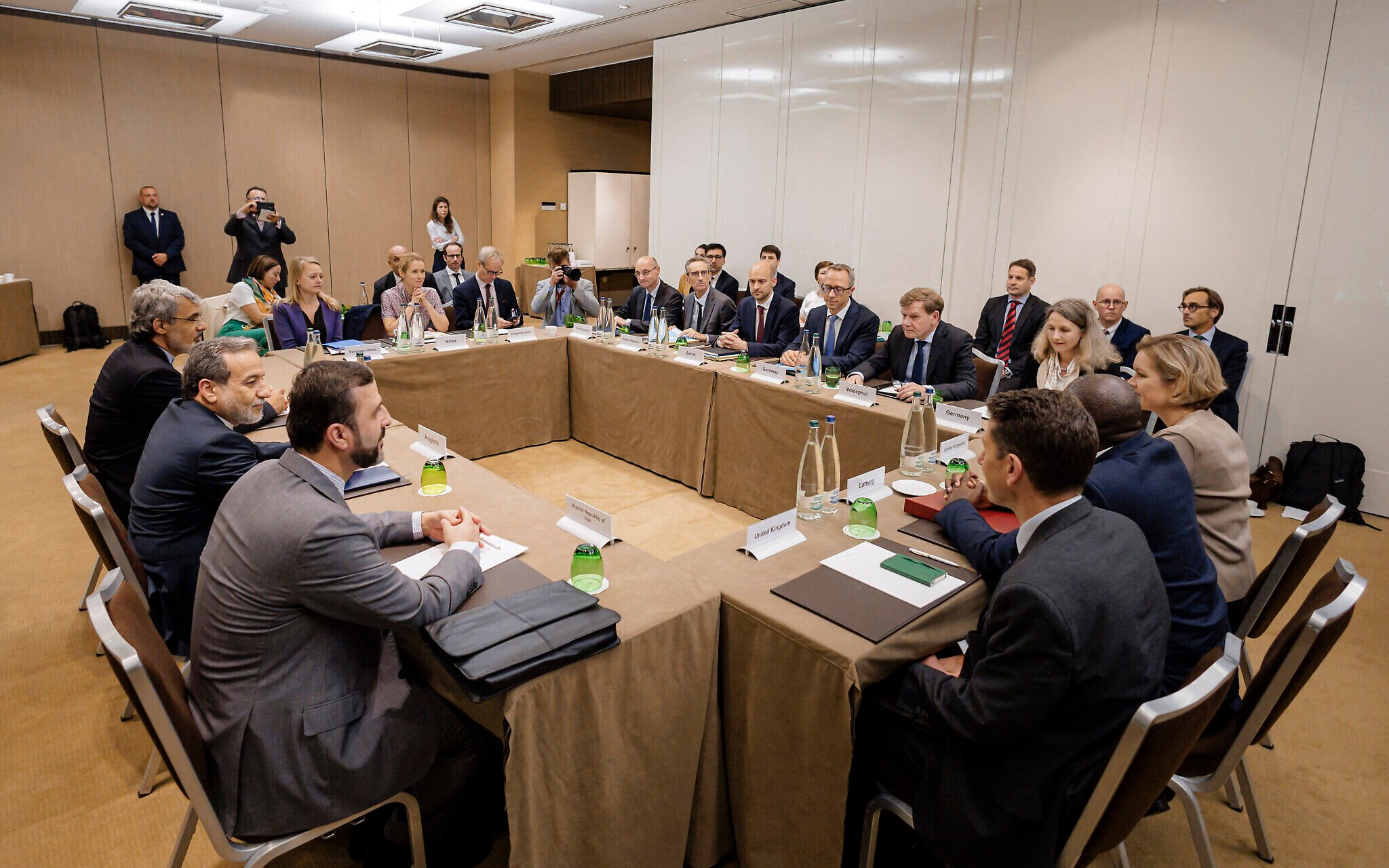



Iran could withhold security commitments if European states invoke a UN mechanism to reimpose international sanctions on the Islamic Republic, a member of Iran’s parliamentary national security commission said on Monday, according to Borna news.
“We have many tools in our disposition. We can withhold our commitment to security in the region, Persian Gulf and Hormuz Strait as well as other maritime areas,” Abbas Moqtadaei said in reference to Tehran’s potential counter-measures to the reimposition of international sanctions.
He was speaking ahead of a meeting on Friday between Iranian deputy foreign ministers and British, French and German diplomats in Istanbul.
The three European states, known as E3, have said they would restore international sanctions on Iran by the end of August if Tehran did not enter productive talks on its nuclear program with Western powers, notably the United States.
The E3 countries and Iran have in recent months held inconclusive talks on Iran’s nuclear program, in parallel to indirect nuclear negotiations between Tehran and Washington.
Israel’s attack on Iran in June, after nearly two years of attacks by Tehran’s regional terror proxies as well as direct ballistic missile and drone attacks from Iran, led to the suspension of the talks. Israel said its assault on Iran’s top military leaders, nuclear scientists, uranium enrichment sites, and ballistic missile program was necessary to prevent Tehran from realizing its avowed plan to destroy Israel.
Last week, Iran’s foreign ministry spokesperson said Tehran would respond to the three European states if they invoked the UN snapback mechanism, which expires on October 18. The Western nations are said to believe the snapback process must be completed — if necessary — before Russia takes Security Council presidency in October.
“Europe is not in a position to endanger itself in the… Hormuz Strait when it is itself in political, economic and cultural conflicts with Russia, China and even the United States,” Moqtadaei said in an interview with Iran’s semi-official Borna news agency.
In a Sunday letter to UN Secretary General Antonio Guterres, Iranian Foreign Minister Abbas Araghchi reiterated Tehran’s belief that the E3 lack the legal standing to invoke the mechanism, arguing that their stance on Israeli and US strikes on Iran’s nuclear facilities last month made them no longer participants to the 2015 nuclear deal to which the snapback mechanism is linked.
The three European countries, along with China and Russia, are the remaining parties to the nuclear pact — from which the US withdrew in 2018 — that lifted sanctions on Iran in return for restrictions on its nuclear program.
In the past, Iran has used the threat of disrupting maritime transit in the Strait of Hormuz or no longer stopping Europe-bound drug trafficking as a means to push back against Western pressures on its nuclear program.
Prior to the recent conflict between Israel and Iran, Tehran and Washington held five rounds of nuclear talks beginning in April and mediated by Oman. But they faced major stumbling blocks such as a disagreement over uranium enrichment in Iran, which Western powers want to bring down to zero to minimize any risk of weaponization.
Tehran maintains its nuclear program is solely meant for civilian purposes. However, it enriched uranium to levels that have no peaceful application, obstructed international inspectors from checking its nuclear facilities and expanded its ballistic missile capabilities. Israel said Iran had recently taken significant steps toward nuclear weaponization.


